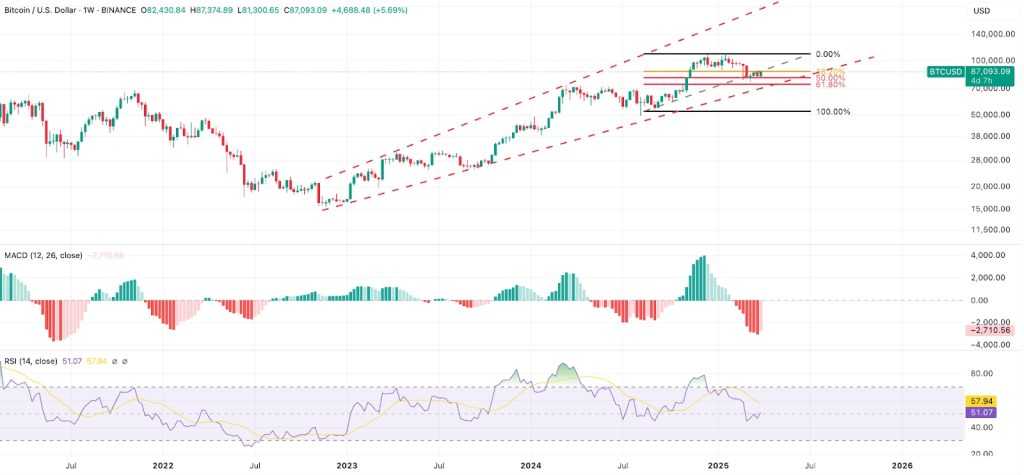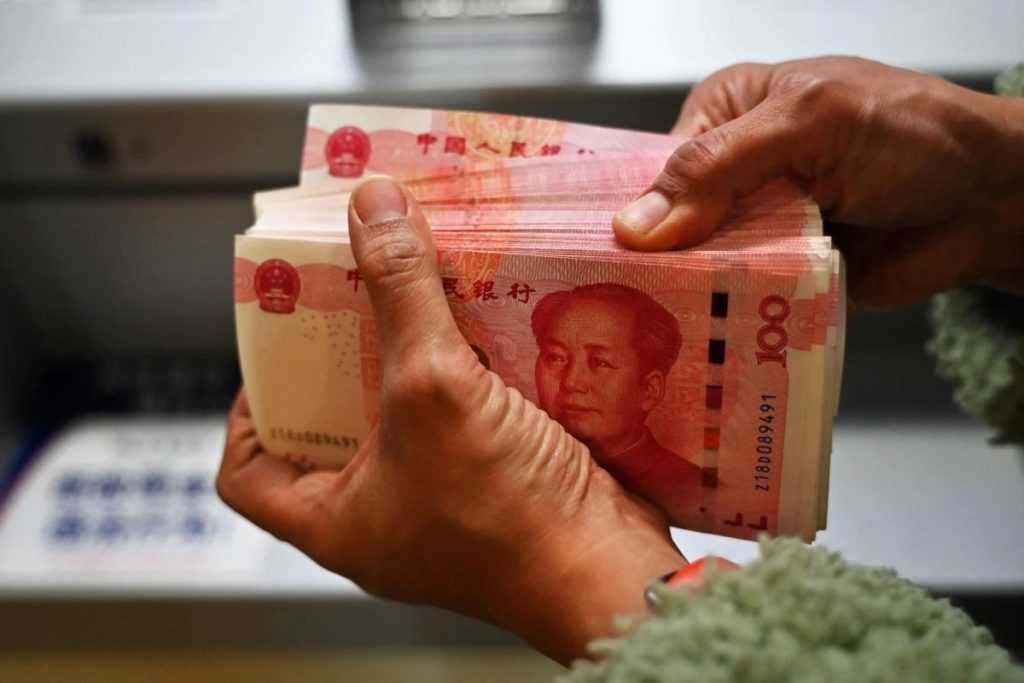Bullet Point Summary
- Arthur Hayes, co-founder of BitMEX, asserts that President Donald Trump’s tariffs could destabilize the global economy but potentially boost Bitcoin.
- Hayes suggests that economic disruptions from tariffs may lead to increased money printing, favoring assets like Bitcoin.
- The recent announcement of 10% tariffs on all countries, with higher rates for China, the EU, and Japan, has intensified market volatility.
- Hayes predicts that a weaker US Dollar Index (DXY) and potential devaluation of the Chinese Yuan (CNY) could drive investors toward Bitcoin.
- Analysts observe significant losses in major indices, indicating potential shifts in investment strategies toward cryptocurrencies.
In a recent analysis, Arthur Hayes, co-founder of BitMEX and a prominent voice in crypto macroeconomics, highlighted the potential positive impact of President Donald Trump’s proposed tariff policies on Bitcoin. According to Hayes, the expected economic turbulence caused by broad tariffs could prompt central banks to deploy aggressive monetary stimulus—ultimately favoring Bitcoin as a hedge.
“Global imbalances will be corrected, and the distortions will be papered over with printed money, which is good for BTC,” Hayes shared via an X post on April 3, 2025.

Source: Trading View
Tariffs and Their Ripple Effects on Bitcoin
Trump’s proposed 10% across-the-board tariff, with escalations to 34% for China, 20% for the European Union, and 24% for Japan, could reignite global trade tensions. Hayes argues this could destabilize markets and shift liquidity into scarce digital assets.
April 3 saw the Nasdaq 100 experience its worst single-day drop in over a year, falling more than 1,000 points—a sign that traders may be rethinking traditional exposure.
“This is medium-term bullish for BTC and gold,” Hayes wrote. “Investors will look for hard assets that can’t be debased.”

China’s Yuan Devaluation in Play?
Hayes speculated that China may respond by letting the Yuan (CNY) slide beyond the symbolic 8.00 mark to maintain its export competitiveness. If that happens, Chinese capital could seek shelter in alternative assets like Bitcoin and stablecoins, driving up crypto volumes and volatility.
Source: Bloomberg – China Weighs Currency Measures to Offset US Tariffs
Federal Reserve Reaction in Focus
Yields on short-term U.S. Treasuries dropped sharply after Trump’s announcement, suggesting that bond traders expect the Federal Reserve to respond with rate cuts. Hayes notes that if liquidity loosens, Bitcoin and other crypto assets could see renewed bullish momentum.
“Rate cuts or QE would signal the Fed’s hand—and crypto will front-run that risk-on sentiment,” Hayes added.
Strategic Macro: Bitcoin as a Geopolitical Hedge
Jeff Park, Chief Analyst at Bitwise Asset Management, reinforced Hayes’ stance back in February 2025, saying:
“In a weaker dollar, lower interest rate environment, Bitcoin performs like a leveraged hedge against monetary instability.”
Source: CoinDesk – How Trump’s Tariff Doctrine Could Drive Bitcoin Demand
The Bigger Picture
If trade tensions escalate into a full-blown financial war, crypto could evolve from an alternative asset into a primary macro hedge. As central banks around the globe turn to stimulus and devaluation, Bitcoin may once again prove its utility as “digital gold.”
Bottom Line: While President Trump’s tariff proposals increase uncertainty, experts like Arthur Hayes and Jeff Park see a silver lining for Bitcoin. Monetary easing, currency volatility, and shifting capital flows could make crypto a central figure in the next global economic chapter.
Disclaimer: This article is for informational purposes only. It is not financial advice. Always do your own research (DYOR) before investing in cryptocurrencies.

Since 2023, Yoshi Ae has combined storytelling and community insight as a PR writer, creating content that resonates across platforms like X and Discord. From press releases to narrative campaigns, Yoshi bridges brand messaging with real-time community engagement.





